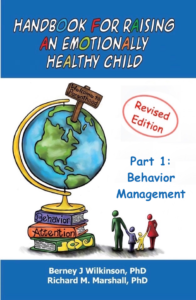Pokémon Go: Exercise or Video Game?
By now I am sure that you have heard about – and probably even seen people playing – the wildly popular new app, Pokémon Go. With tens of millions of downloads in the US alone, the app is reportedly earning $5 million per day, and that is just on micro transactions (in-app purchases). Not bad, for a free app. Read More
A New Look At Addiction
-by Dr. Richard Marshall
I took advantage of the extra time that the July 4th holiday provided by first perusing the news. I’m glad I did, as I stumbled on a gem of an article about addiction in teens. It is beautifully written by Maia Szalavitz, a twenty something former addict and it appears in the June 25, 2016 issue of New York Times Sunday Review. I was initially attracted by the title, “Can You Get Over an Addiction.” We have a special interest in this topic, because we see many teenagers in our practice who are just beginning to use drugs and it is devilishly difficult to convince them to stop. Read More
Getting Ready for S.U.M.M.E.R.
As Alice Cooper heralded, “School’s out for summer!” Students are more than ready to be out of class and away from school for the next few months. And let’s be honest, most parents are eager for the end of the school year as well. No more homework battles. No more projects. No more teacher conferences. Read More
Now Available: The Handbook for Raising an Emotionally Healthy Child Part 1
It has been a few days since I have written a post because we have been busily working to get everything organized and prepared for today, the launch of our new Kindle book, The Handbook for Raising an Emotionally Healthy Child Part 1: Behavior Modification. Read More
Resource 7: Balancing Control and Reactivity
As I mentioned in Wednesday’s blog, the past few weeks have been dedicated to performing the final review and edits to Part One of the revised Handbook for Raising an Emotionally Healthy Child, which will be available as a Kindle e-book on May 9, 2016. The revisions are really coming together very well and we believe that the information will help parents find more joy and pleasure in their task of being a parent. Read More
Raising an Emotionally Healthy Child – Part One
It has been a while since I offered an update on some of the things we have in the works. So I thought I would take the opportunity in this mid-week post to catch you up a bit. Read More
Are We Doing Our Students a Disservice?
In previous blog posts, I have mentioned some of my concerns regarding our youth today. While I believe that they are generally smarter and more experienced than previous generations, I can’t help but wonder if some of the things we, as adults, are doing will actually make life more difficult for them. Read More
Attention – More Than Just Being There
My colleague, Dr. Richard Marshall, and I are in the process of revising our 2012 publication, Handbook for Raising an Emotionally Healthy Child. In this book, we review the three basic tenants to parenting, Behavior Management, Attention, and Love.
Within the Attention portion of the text, we discuss the difference between the quantity of attention you give your child and the quality of attention you offer your child. Read More
Psychology Today article on ADHD in France
This is an interesting article detailing some of the differences between ADHD prevalence rates in the US and in France. This is a great precursor to our next podcast, which we will be recording this Friday.
Let us know what you think about this issue.
Read the article here: https://www.psychologytoday.com/blog/suffer-the-children/201203/why-french-kids-dont-have-adhd
Parenting in Broken Homes
Divorce is almost as common as marriage. While I think that there are a number of reasons for the increased divorce rate (people getting married too young, the fall of the economy, and the growth of social networking, just to name a few), the casualties of divorce extend well beyond the husbands and wives. The children of divorce are often left in the wake of turmoil, without a life raft. Now don’t get me wrong, I firmly believe that divorce is the right decision in many cases, even when children are involved. I do not believe that parents should stay together, “for the sake of the children.” Children thrive in loving, stable homes. When parents “tolerate” one another for the “sake of the children,” it is rarely, if ever, loving and stable. In fact, I have seen situations in which the best thing that happened to the family was divorce.
Unfortunately, the strife and problems between parents often extend well beyond the final Dissolution of Marriage. The arguments continue, and often escalates as time passes. When this is the case, attorneys and judges often call for the involvement of a parent coordinator, which is one of the most difficult roles I play as a psychologist. Trying to help two adults, both of which harbor deep seeded anger and hurt about the other, is challenging and requires considerable time and effort, on everyone’s part. Nonetheless, through my experience I have found at least five pitfalls that tend to make parenting in broken homes problematic. Therefore, while I will save a discussion of healthy divorces for another post, I want to uncover the common pitfalls and give you a new route to avoid the problems that tend to accompany them.
Pitfall 1 – More time does not always mean better relationship. Parents often assume that they need more time with the child, as though this is the only way that they can have a true relationship with their child. This is definitely not the case. In fact, it can often harm the relationship. Let me say right off, parents need to spend time with their child. It is imperative that both parents have weekly time with the child. However, when time in your home becomes more important than the child’s needs, it can damage your relationship. This becomes especially salient as the child has extracurricular activities. Let me give you a real example.
An 8-year-old boy, who lives primarily with his mother, has signed up for soccer. The father, who lives in the next town over, is upset because games are on Saturdays, which will take time away from his visitation weekend. Unfortunately, this father is more focused on the “time” with his son than on their “relationship.” As such, the father refuses to take his son to his soccer games. From the father’s perspective, his time is limited and he does not want to take time away from visiting with his son. Unfortunately, this places the child is a very bad situation. While he certainly wants to spend time with his father, the boy begins feeling frustrated with his father and resists visits. He does not want to go to his father’s house because it takes him away from other important things in his life (social relationships). As you can imagine, the father subsequently blames the mother for this (“She is trying to keep him away from me!”). We will talk more about this with Pitfall 3, but the father is certainly not thinking about the child’s perspective in this situation. All he is focused on is time. As I hope you can see, the emphasis on “more time” caused damage to the father-son relationship.
Pitfall 2 – Visitation has to be “Fair.” Related to Pitfall 1 is the issue of visitation time being “fair.” Minute by minute is counted and any time “missed” in visitation must be made up, because it is “fair.” Many parents, when dealing with the issue of “fairness,” talk about 50/50 time share. I am not a proponent of this type of arrangement. As you have seen in some of my other posts, children need consistency and predictability. If they are changing homes every few days or so (or even every other week), kids must keep adjusting to new expectations and routines. This is very difficult, especially during the school year when they are expected to use most of their mental and emotional energy to learn. It is my opinion that a child should sleep in one bed, most of the time. Now I know the argument, “Well if we switch every other week (i.e., one week with dad, one week with mom, etc.), isn’t that consistent?” The simple answer is, no. Consistently being inconsistent is not consistency. Most parents that I talk to admit that it takes the child a few days to readjust back to their home after visits with the other parent. If you do this every week, the child is spending 25% of their life readjusting to where they are living. There is no way to argue that this is consistency. In my experience, the issue of “fairness” has less to do with the child and more to do with issues between the parents. One parent does not want the other parent to “win.” We will delve farther into this issue in Pitfall 4. In the meantime, let’s look at an example that I hope will illustrate that “fair” has nothing to do with accounting for the amount of time in each home.
Let’s go back to when the parents were together. Think back to when the parents were married and everyone lived together. On a typical week day, how much time each night did you spend, one-on-one with the child? Probably not a lot of time, unless you were helping him/her with homework or eating dinner together. Most of the time, the child is playing (outside or with video games) or doing homework between the time they get home from school and begin preparing for bed. I have never met a parent who spends 4 hours of one-on-one time, each night with their child. It just does not happen. If that is the case, why is it “fair,” once you are divorced, to insist that you have to have a specific amount of time with the child each night? The parent that the child lives with primarily does not spend 4-hours each night with the child, so why do we, when trying to be “fair,” imply that they do? By and large, if the “non-primary” parent has dinner with the child, they have spent about as much time with the kid as the “primary” parent. Trying to think of what is “fair” for the child as opposed to what is “fair” for the parent would likely make things much better for the child. They would be able to better stick with their week-day routine, improving their ability to meet expectations at school and learn.
Pitfall 3 – Change your perspective to that of your child. During the struggles of a divorce and the subsequent battles with visitation, parents tend to omit the perspective of the child. Of course, every parent says that they want “what is best” for their child. However, what they view as “best” tends to be what the parent feels is “best.” They fail to step back and really examine what the child may be experiencing.
Following a divorce, the child is, in essence, being pulled between the parents. There are some parents who do a wonderful job of avoiding these problems. Unfortunately, most parents fall head first into this pitfall and have a hard time finding their way out. Let’s return to the example from Pitfall 1. The father, whose perspective is that the best thing for the child is to spend more time with him, fails to understand the child’s perspective. Soccer and social relationships is important to the child. It is not that the child does not want to spend time with him, it is simply that as children age, they tend to want to spend more time with their friends. In any home (united homes or broken homes), all children spend less time with their parents as they age. As such, the best thing for the child, from the child’s perspective, may be less time with his/her parents, regardless of visitation schedules.
Another big issue I see with broken families is when a child desires to primarily live with the other parent. This tends to mean that the child, at some point, tells mom that they want to live with dad. This is an extremely difficult thing for the mom to hear. However, let’s look at it from the child’s perspective. If the child primarily lives with mom, that means that he/she has more expectations in her home. They tend to have more chores, more homework time, earlier bed times (due to being with you on school nights), and less “free time.” With the dad, however, there are far fewer expectations. If a kid is visiting the dad every other weekend, he has the opportunity to give the child much more attention and can spend a lot more “fun time” with the child. What kid would not be attracted to that? Should it really be surprising that the child, from their perspective, would want to live in that environment all of the time? This leaves mom with a decision. If she says no, she is looking at battling the kid’s frustration and irritability with not being able to live with dad. He/She will blame mom for keeping him/her from dad. I have even seen kids run away in these situations. What happens, however, if the mom says yes? From my experience (personal and professional), the change in living situation is relatively temporary. Look again at the situation I painted above. As soon as the child switches to live primarily with dad, what do you think happens? I’ll tell you… The child is surprised that it is not all fun and games with dad any more. Dad’s house is going to begin to look like mom’s house. The child will have more homework time, more chores, more expectations, etc. More times than not, the changes that occur at dad’s house tend to result in the child wanting to switch back to the way things were. This is not to say that anyone was wrong. All kids push limits and test hypotheses to see what is in their “best interest.” Nine times out of 10, when things do not work out the way we expect, we return to the norm. this is true for adults and children. As a result of this tendency, I typically encourage a trial period, allowing the child the opportunity to experiment with the change, with the option to return. Parents tend to be better off if they do not fight this battle (that is of course unless there are valid reasons to restrict a change).
Pitfall 4 – Not Friends, but allies. Despite the interpersonal problems that led to the divorce, being parents mean that you will always be connected to one another. You will be involved with one another for the rest of your lives. School functions, graduations, weddings, etc. will bring you together, despite your feelings for one another. Unfortunately, people tend to harbor so much unnecessary anger and even hatred for one another. Once the divorce is over, the issues that led to the divorce is also over. You do not have to deal with his irritating habits or her “nagging.” That part of your relationship is done. Rarely, if ever, to parents divorce because of the child, yet the child is the only reason that they have to maintain any connection. As such, why is it necessary to maintain so much animosity towards one another when the only thing that keeps you connected is the one thing that had nothing to do with the divorce? Regardless of your feelings for the other person, he or she is going to be a part of your child’s life, period.
What I try to help parents recognize is that the nature of their relationship is now different. No longer should you think that you and your “ex” must be friends and “get along.” Rather, consider him or her as an “ally.” Being an “ally” implies that you are coming together strictly for a common goal. There are no other motives. Outside of the “common goal,” he will do what he is gonna do and she will do what she is gonna do. Unless the other parent’s actions will directly affect the “common goal,” why should it matter to you what they do with their time and life? When the actions do affect the “common goal,” you should discuss (ideally with a mediator) and resolve the issue. Then, move on with your life. There is no reason to allow your life (e.g., your emotional stability, choices, relationships, etc.) to be negatively affected by the choices of the other person that you chose to divorce.
Pitfall 5 – Co-parenting. Related to being allies, co-parenting is often a challenge for divorced parents. What I mean by co-parenting is attempting to work together to ensure consistent expectations for your child. Too often, parents say that they “do not care” what the other parent expects of the child. “I don’t care what your dad [mom] lets you do, in my home…” This perspective is almost as ridiculous as parents believing that it is “the teacher’s responsibility” to teach the child all that they need to know. This segregation of expectations is not healthy for the child. In fact, it can create two problematic trends. First, the child will begin to pit one parent against the other. “Well dad lets me do… ” “Mom lets me stay up later.” This further increases strife between the two homes, making them more and more different and increasing negative feelings between the parents. Second, the child could develop internalizing conditions, such as anxiety or depression. As I mentioned many times on my blog, kids need consistency and predictability. If the expectations of the two homes are so different, children can develop symptoms of anxiety that could interfere with healthy emotional development.
To help with co-parenting, I work with parents (often as a mediator) to develop similar expectations, rules, and schedules between the homes. I am not naive to believe that the two homes will become identical. Rather, it is my hopes to make them similar enough so that the child knows that “x, y, and z” is expected of them no matter where they are. It is a challenge for some parents (for many of the reasons mentioned above), but when divorced parents can co-parent in this way, the outcomes for the child (academic, emotional, etc.) tend to be far better.
I hope that this helps some of you out there. Please feel free to post questions.
Dr. B





